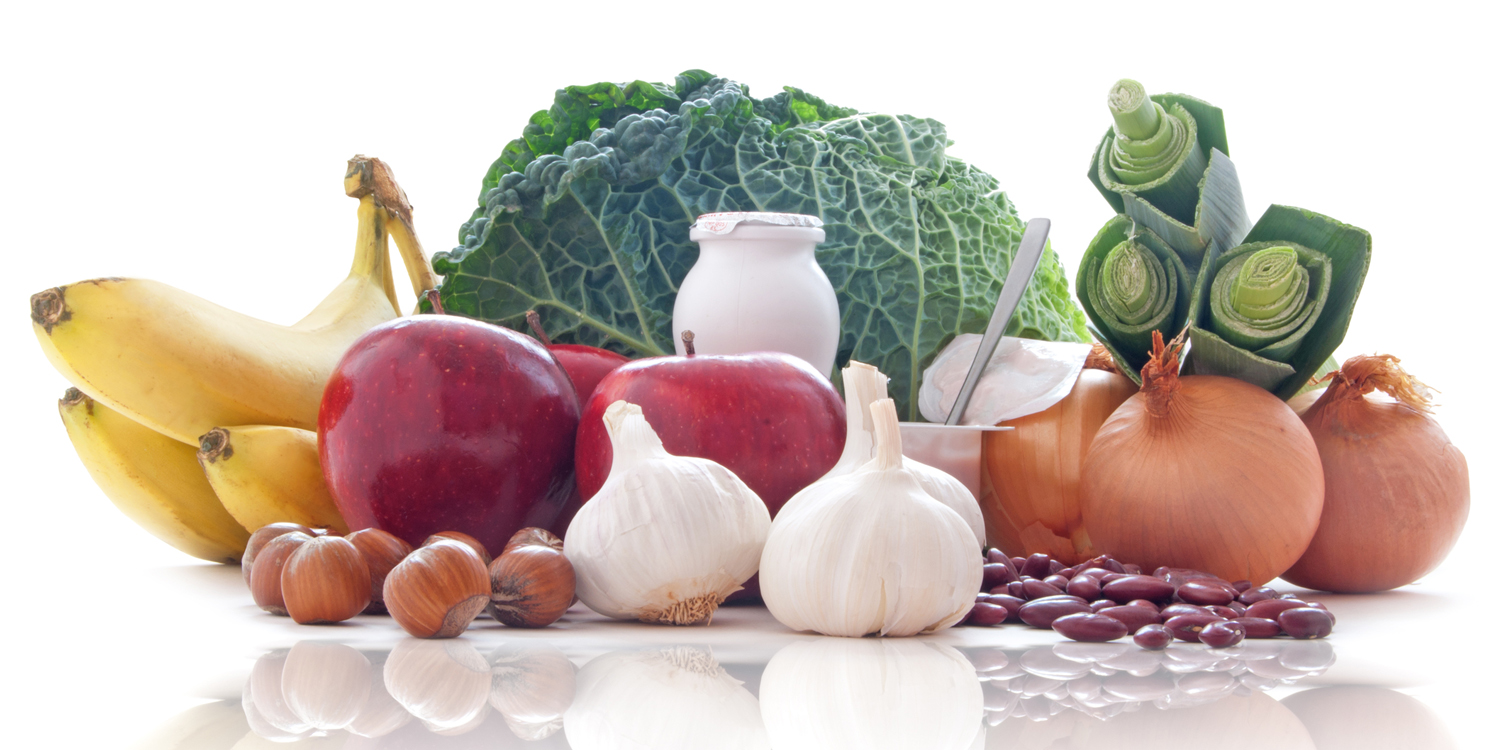Keep Colon Cancer At Bay
A magic bullet to cure colon cancer doesn’t exist—but science has made major headway in learning what works to lessen your risk.
Colon cancer stubbornly remains the third most common cancer in American adults, as well as the second leading cause of cancer-related death in both men and women. The good news? This type of cancer can be greatly influenced by some key diet and lifestyle changes. In fact, colon cancer is one of the most preventable cancers, as well as being slow-growing and treatable.
Many of the same recommendations that promote overall health align with minimizing your risk of colon cancer; specifically, eat less red meat (no more than once or twice a week), include fish in your diet, focus on a variety of colorful fruits and vegetables, maintain a healthy body weight, exercise regularly, don’t use tobacco, and limit alcohol.
Tending your gut
Colon cancer generally starts as tiny growths, called polyps, along the lining of the large intestine. These polyps, over a period of 10 years of slow growth and change, can morph into cancer. Colonoscopies generally aim to find and remove colon polyps in order to block cancer development. Of course, preventing polyp formation in the first place means that cancer doesn’t take root at all.
Your gut serves as the front line when it comes to exposure to cancer-promoters in foods—but anticancer substances in food can also exert a strong effect here. Take garlic. The potential of garlic as a cancer fighter has been known since ancient times. This pungent herb fights cancer at several sites in the body, including the colon. A review of numerous studies of garlic intake determined that a diet rich in garlic correlates to a much lower chance of developing polyps—and thus a lower overall risk of colon cancer.
Garlic is a great addition to many dishes, although some people might experience heartburn after indulging in it. And for those with a sensitive nose, it’s good to know that odor-controlled garlic supplements are available.
If you are following the prudent advice to avoid red meat, you can readily turn to fish to take its place on your plate. Scientific research demonstrates a consistent pattern of cancer protection when even small amounts of fish are included in a person’s diet on a regular basis. The essential fatty acids in fish called omega 3s (specifically EPA and DHA) account, in large part, for this colon-friendly benefit. Superior sources of omega 3s include salmon, herring, sardines, cod, tuna, and mackerel. But if eating fish isn’t to your liking, turn to omega-3 supplements (derived from either fish or plant sources).
Gut-friendly supplements
The friendly bacteria in probiotics continue to rack up health benefits, including for a lower risk of colon cancer. Probiotics (as well as prebiotics) alter acidity in the colon toward a level less favorable to cancer development. Since probiotics also encourage regular bowel movements, these supplements help prevent cancer by literally sweeping out carcinogens that might be present in waste matter so they aren’t in contact with the lower intestine, where they could otherwise trigger cancerous changes. Probiotics can even be beneficial in people already known to have polyps or colon cancer; research shows that regular use of probiotic supplements alters biomarkers of colon cancer in a healthier direction.
Upping your intake of calcium could pay off in terms of lower colon cancer danger; this is particularly true if your calcium intake is currently lower than recommended. For each extra 100 milligrams (mg) of supplemental calcium, there is a measurable drop in colon cancer development risk. This benefit of extra calcium appears to level off when intake reaches 1,200 mg daily. (This doesn’t mean that more calcium is harmful, but that additional benefit for colon cancer risk reduction wasn’t seen in those ingesting more than this.) Even people who have already had colon polyps can benefit, with calcium (as 1,200 mg per day of calcium carbonate supplements) lowering the chance of the polyps returning or progressing to more dangerous forms over the four years that a group of adults were tracked.
Another mineral, magnesium, also shows protective effects against colon cancer. Several large studies indicate that risk of colon cancer goes down in people with higher magnesium intakes. This association is particularly strong in women. Calcium and magnesium are often found in the same multimineral supplements, which makes it easy to get both of these important minerals.
Brewing up good health
Coffee just might be a colon cancer fighter in a “to go” cup. In the latest of a growing list of studies, researchers found that in a group of men being screened for colon cancer, those drinking the most coffee ended up least likely to have precancerous tumors found by the screening. With coffee, as daily servings go up, so do the protective anticancer benefits. This perk of coffee appears to be related to antioxidants and other cancer-fighting substances found in coffee, as well as coffee’s speeding-up effect of transit time in the colon.
“Coffee Intake and the Risk of Colorectal Adenoma: The Colorectal Adenoma Study in Tokyo” by S. Budhathoki et al., Int J Cancer, 4/21/15
“Colorectal Cancer and Adenomatous Polyps in Relation to Allium Vegetables Intake: A Meta-Analysis of Observational Studies” by F. Turati et al., Mol Nutr Food Res, 6/27/14
“Dietary Magnesium Intake and Risk of Cancer: A Meta-Analysis of Epidemiologic Studies” by H.J. Ko et al., Nutr Cancer, 6/9/14
“Dietary Supplement Use and Colorectal Cancer Risk: A Systematic Review and Meta-Analyses of Prospective Cohort Studies” by R.C. Heine-Bröring et al., Int J Cancer, 11/11/14
“Dietary Synbiotics Reduce Cancer Risk Factors In Polypectomized and Colon Cancer Patients” by J. Rafter et al., Am J Clin Nutr, 2/07
“Effect of Calcium Supplementation on the Risk of Large Bowel Polyps” by K. Wallace et al., J Natl Cancer Inst, 6/16/04
“Fish Consumption and Colorectal Cancer Risk in Humans: A Systematic Review and Meta-Analysis” by S. Wu et al., Am J Med, 4/17/12
“The Microbiome and its Potential as a Cancer Preventive Intervention” by S.J. Bultman, Semin Oncol, 9/8/15
“Primary Prevention of Colorectal Cancer: Myth or Reality?” by M. Crosara Teixeira, World J Gastroenterol, 11/7/14

